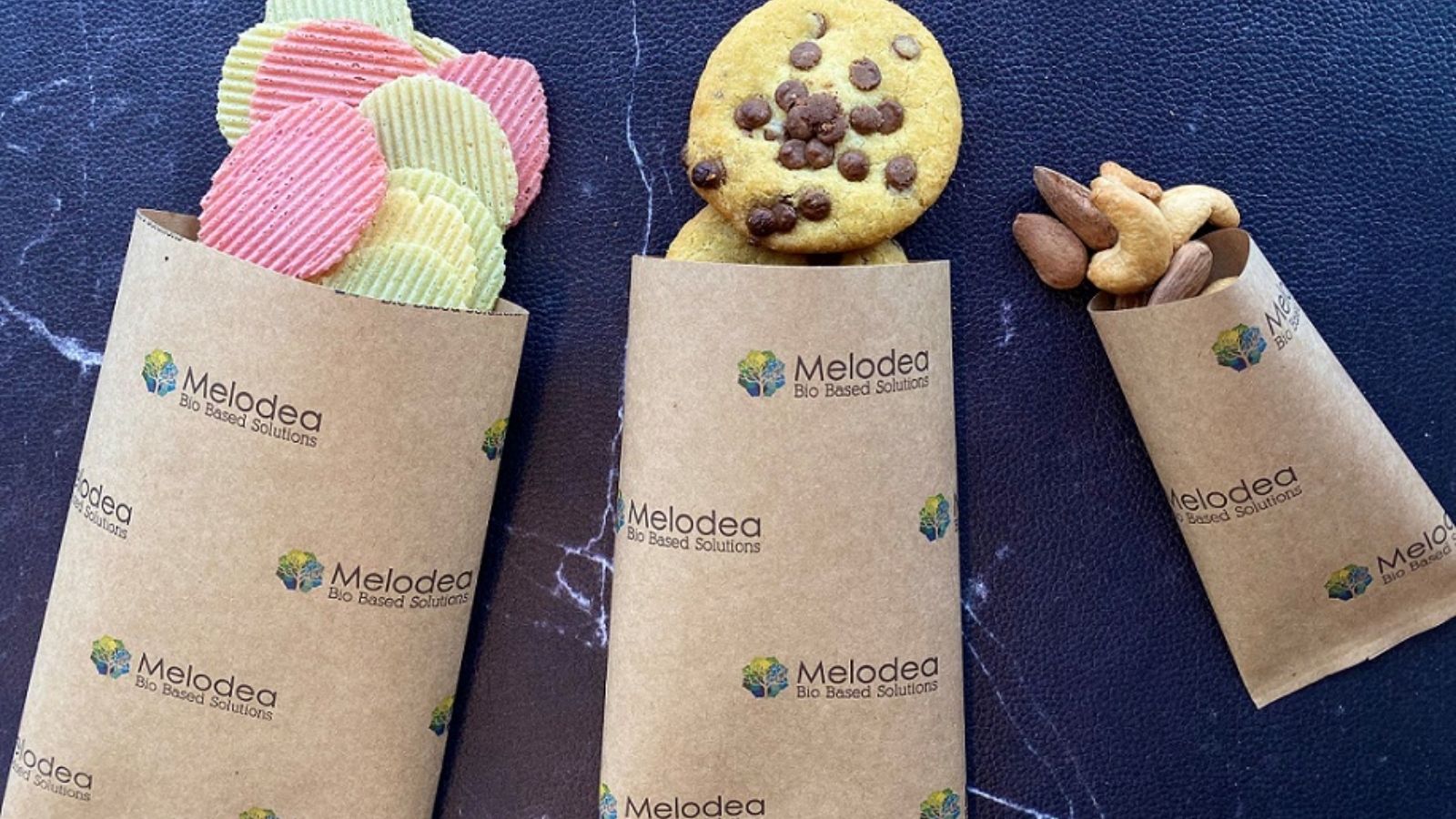A plastic-free, plant-based barrier coating for packaging from Rehovot-based Melodea will be available within six months to the burgeoning US and South American markets.
Melodea’s cellulose nanocrystal coating is sourced from wood pulp, a sidestream of the paper-making industry. This eco-friendly material lets food, beverage, and consumer goods packagers stop using plastic or aluminum as a barrier to air, water, or grease seeping through single-use packaging.
With increasing demand from the US market, Melodea will open a manufacturing plant in the United States to produce MelOx, which protects packaged products from oxygen and oil and grease transmission; and VBcoat, which counteracts the transmission of water, oil, and grease.
Both materials are compliant with FDA regulations for food packaging and are currently used for the manufacture of paper-based pouches, lids, molded pulp trays and more.
Shaul Lapidot, CEO and cofounder of Melodea, said that cellulose nanocrystals are a naturally abundant and renewable alternative to environmentally harmful materials.
“The new plant, combined with our newly established ties in the US, can potentially triple our manufacturing capacity to meet amplified demands. It also will shorten the travel and subsequent carbon footprint by bringing production closer to our main markets in South America and the US,” Lapidot said.
Melodea was founded as a spinoff from the Hebrew University of Jerusalem in 2010 by Lapidot with Tord Andres and serial entrepreneur Prof. Oded Shoseyov. The technology is protected by 14 patents and won the Packaging Europe 2019 Sustainability Award.
Fighting for Israel's truth
We cover what makes life in Israel so special — it's people. A non-profit organization, ISRAEL21c's team of journalists are committed to telling stories that humanize Israelis and show their positive impact on our world. You can bring these stories to life by making a donation of $6/month.









